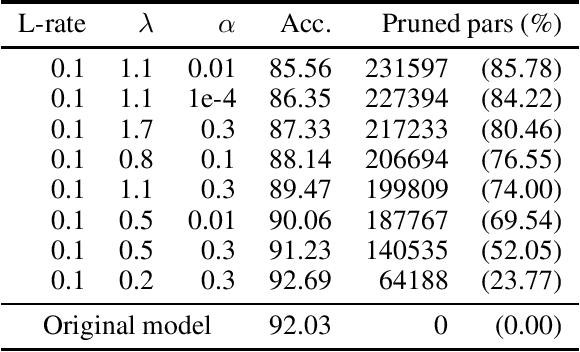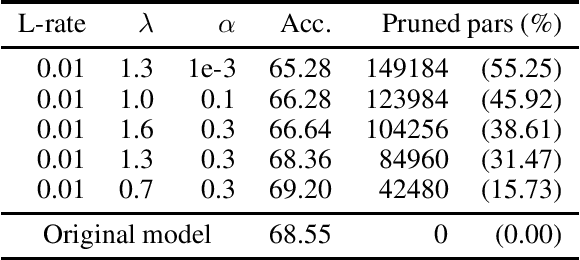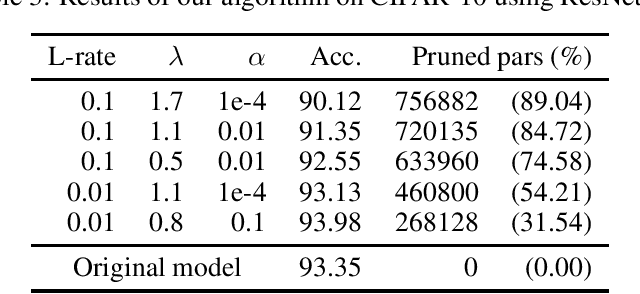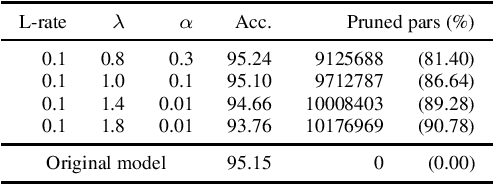Deep Neural Networks pruning via the Structured Perspective Regularization
Paper and Code
Jun 28, 2022



In Machine Learning, Artificial Neural Networks (ANNs) are a very powerful tool, broadly used in many applications. Often, the selected (deep) architectures include many layers, and therefore a large amount of parameters, which makes training, storage and inference expensive. This motivated a stream of research about compressing the original networks into smaller ones without excessively sacrificing performances. Among the many proposed compression approaches, one of the most popular is \emph{pruning}, whereby entire elements of the ANN (links, nodes, channels, \ldots) and the corresponding weights are deleted. Since the nature of the problem is inherently combinatorial (what elements to prune and what not), we propose a new pruning method based on Operational Research tools. We start from a natural Mixed-Integer-Programming model for the problem, and we use the Perspective Reformulation technique to strengthen its continuous relaxation. Projecting away the indicator variables from this reformulation yields a new regularization term, which we call the Structured Perspective Regularization, that leads to structured pruning of the initial architecture. We test our method on some ResNet architectures applied to CIFAR-10, CIFAR-100 and ImageNet datasets, obtaining competitive performances w.r.t.~the state of the art for structured pruning.
 Add to Chrome
Add to Chrome Add to Firefox
Add to Firefox Add to Edge
Add to Edge